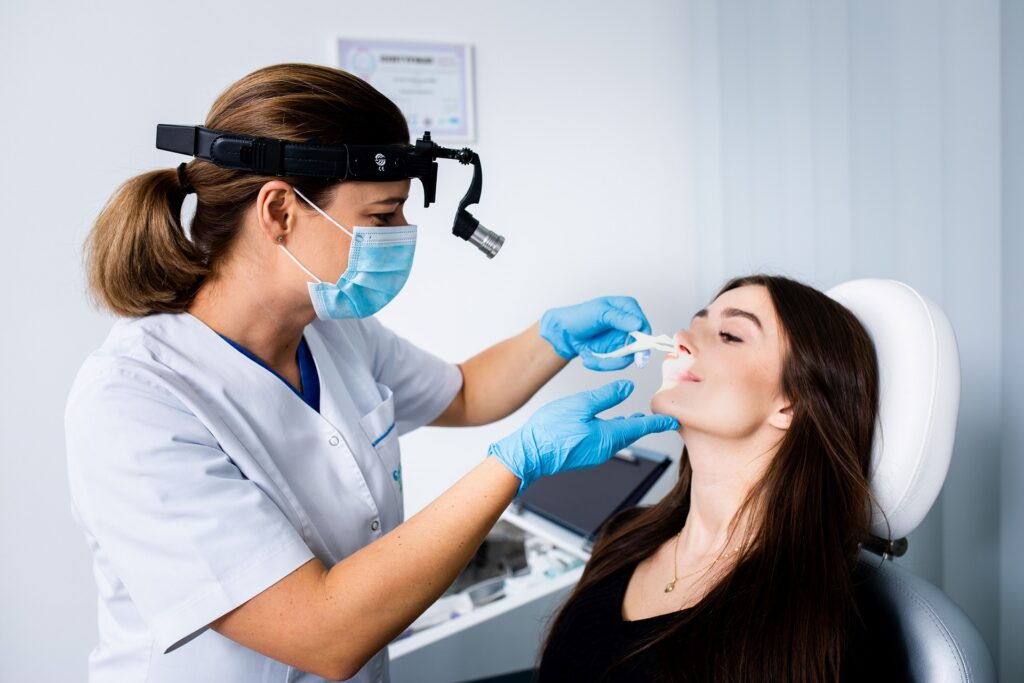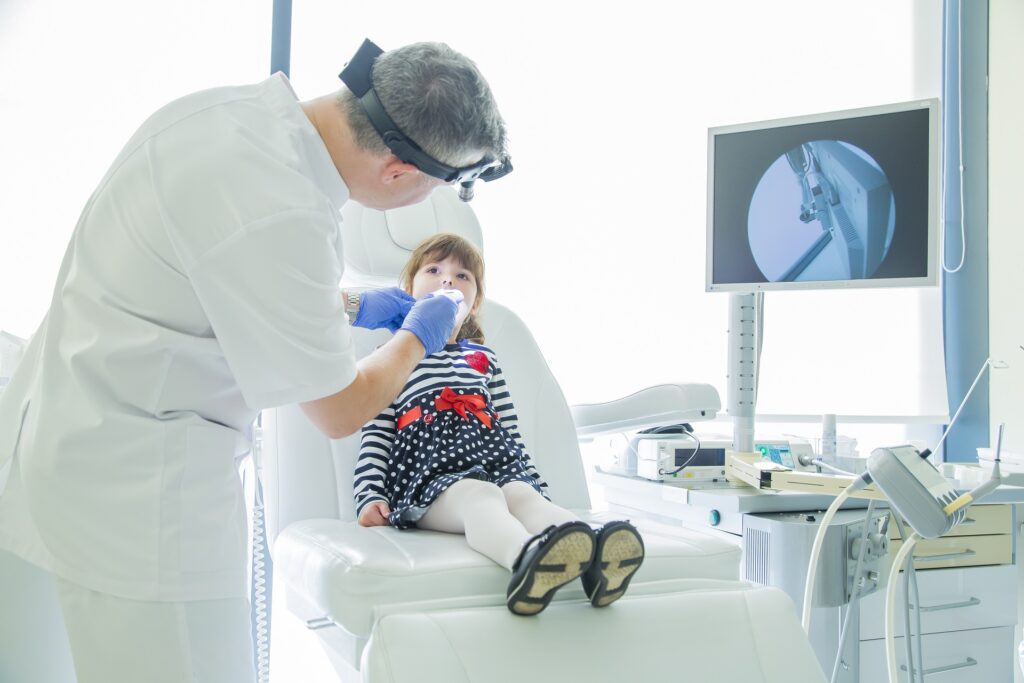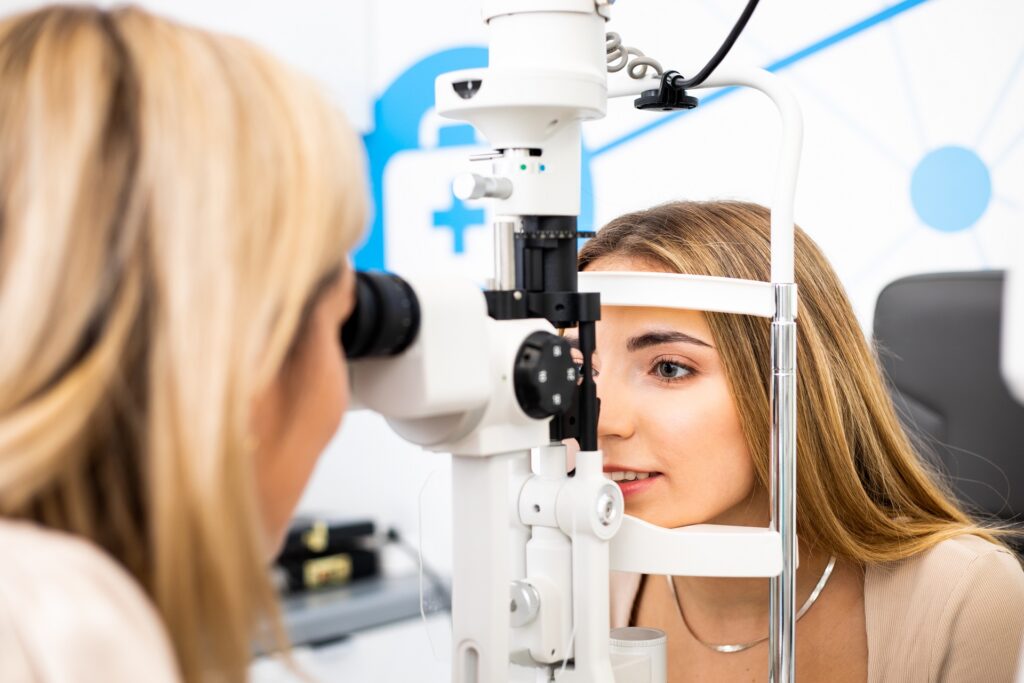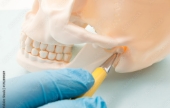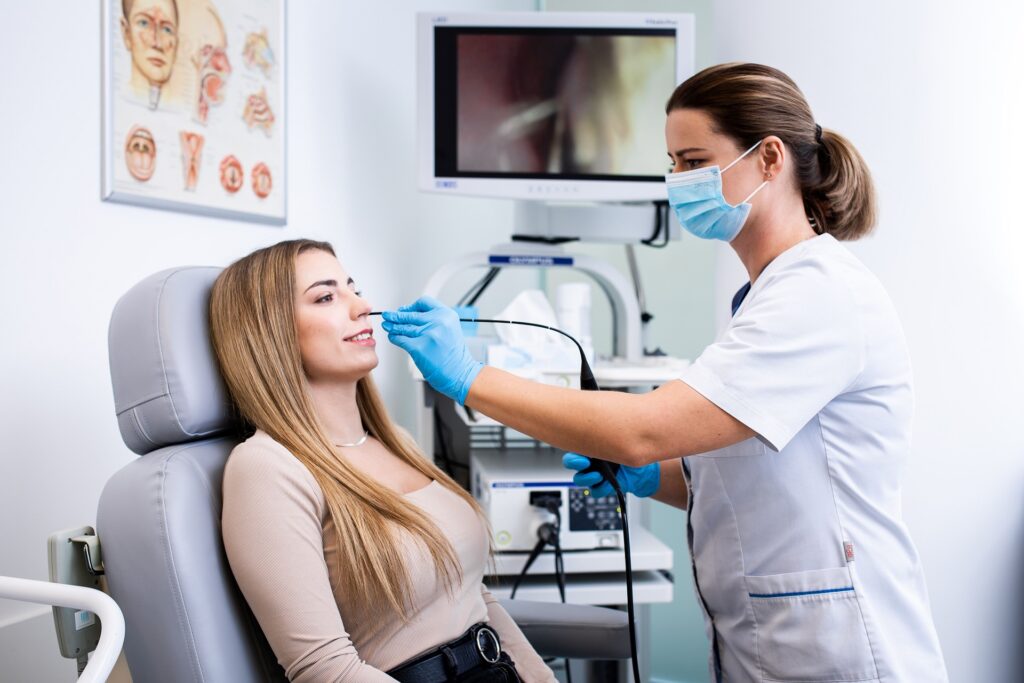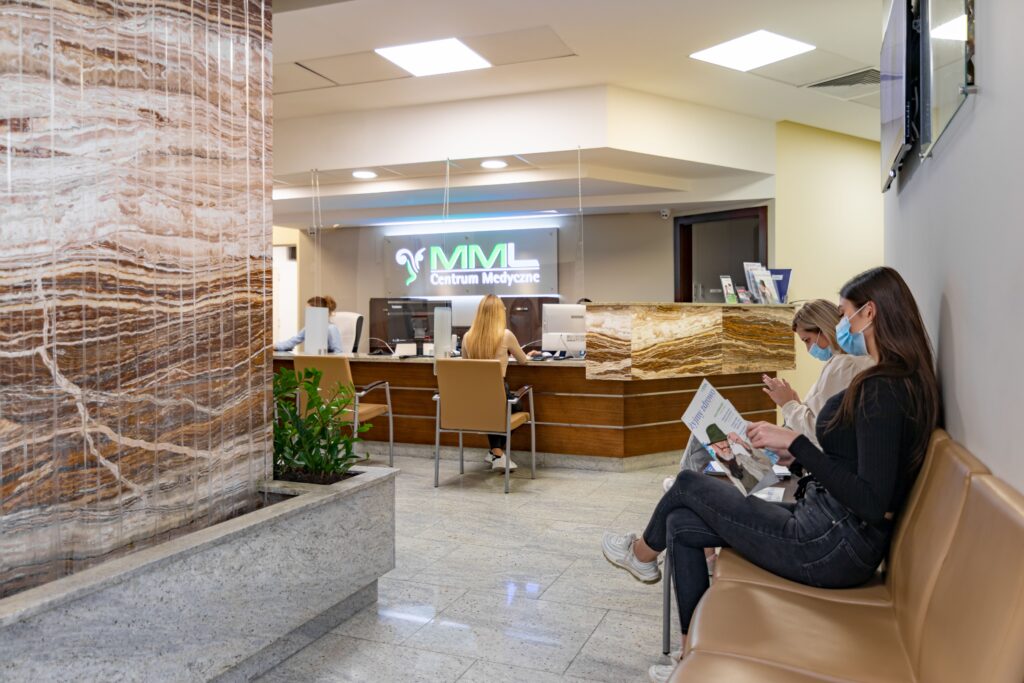Laryngologists, or more properly otolaryngologists, are doctors who deal with the prevention, diagnosis and treatment of diseases in the ears, nose, throat and larynx. Their areas of interest also include balance disorders and hearing problems. In addition to diagnostics and pharmacotherapy, laryngologists also perform surgery on the nose, sinuses and throat. What are the characteristics of laryngology and nasal surgery and what should you know about them before visiting MML Medical Center?
What does a laryngologist do?
Laryngology includes not only the treatment of the ears, nose, larynx and throat, but also the mouth, esophagus, trachea, bronchi and paranasal sinuses. The main tasks of physicians involved in this specialty include:
- physical and subject examinations of the indicated areas,
- diagnosing and treating deafness, hearing loss and other hearing-related problems,
- restoring patency of the ear canals,
- diagnosing and treating sinus and nasal diseases,
- removing wax deposits from ears, tonsils and nasal polyps,
- removing foreign bodies from the ears, nose, trachea and esophagus.
Laryngology – specialties
The name otolaryngology comes from a combination of the Greek words otos (ears), rynos (nose), laryngos (larynx) and pharyngos (throat). Due to the multitude of organs and diseases ENT specialists deal with on a daily basis, additional specializations have been created to cover one, usually quite narrow, field of knowledge:
- otology – diagnosis and treatment of ear diseases,
- rhinology – diagnosis and treatment of disorders of the nose and paranasal sinuses,
- audiology – functioning and disorders of the sense of hearing,
- phoniatrics – diagnosis of problems involving the vocal cords,
- ENT oncology – treatment of cancers within the organs of the head and neck,
- pediatric otolaryngology – diagnosis and treatment of diseases of the ears, nose, throat and larynx, using methods adapted to the age of the youngest patients.
What symptoms to report to an ENT clinic?
Most ENT diseases and disorders carry a range of symptoms. Some of these are distinctive, while others may seem unimportant. However, only a conscious observation of the body and a quick reaction in case of alarming symptoms, allow to avoid serious consequences and enjoy good health. The most important symptoms that should result in a visit to an ENT specialist include:
- ear pain,
- noise and ringing in one or both ears,
- onset or worsening of hearing loss,
- a feeling of clogged ears,
- a dry cough, throat clearing,
- sore throat,
- chronic hoarseness,
- frequent and loud snoring,
- dizziness and recurrent headaches,
- imbalances,
- chronic running nose and nosebleeds,
- smell and taste disorders.
Laryngologist – diagnosis
Every ENT consultation begins with taking a patient history. The doctor asks in detail about the time of onset and severity of symptoms. He/she then moves on to a physical examination, which, depending on the symptoms presented, may include:
- examination of the ears with the aid of a speculum, with special regard to the presence of foreign bodies in the ear canal, the condition of the ear canal, the eardrum and the ear auricles,
- examination of the larynx and nose with a mirror,
- assessment of the condition of the nasal conchae, nasal septum and nasal mucosa,
- examination of the oral cavity, especially the tongue, palate, uvula and palatine tonsils,
- palpation of lymph nodes and salivary glands.
ENT consultation – examinations
At MML Medical Center, during ENT consultations we use diagnostic endoscopes with the possibility of visualization for the patient, who during the examination on a large plasma screen can watch the interior of their nose, throat or ears, see the places where there are disease problems, such as a deviated nasal septum, nasal polyps, nasal conchae hypertrophy, tonsil diseases, etc. For diagnostics requiring even greater precision, we use a microscope and a fiber endoscope.
We also make photo and video documentation on digital media. Based on photographs and documentation, we check the resolution of lesions and explain individual problems that occur during the treatment of ENT diseases. We also provide emergency, follow-up, preoperative and postoperative consultations. They are performed by ENT surgery and audiology specialists – doctors with years of clinical experience.
Nose surgery
At MML Medical Center, our doctors also perform nose surgery procedures. Many are designed to get rid of conditions such as breathing problems, snoring and sleep apnea. They allow our patients to breathe fully again and regain comfort in their lives. We use modern discoveries and solutions, thanks to which our treatments are minimally invasive and allow for a quick return to daily activities. The most commonly performed procedures within the scope of nose surgery include:
- septoplasty – correction of the nasal septum,
- conchoplasty – correction of the nasal conchae,
- polypectomy – removal of abnormal mucosal growths in the sinuses and nasal cavities,
- rhinoplasty – correction of the appearance of the external nose.
Our other services
We have also created websites for our ENT patients: www.niechrapanie.pl/. Our patients can find a wealth of relevant information on sleep-disordered breathing, airway obstruction and respiratory problems, and treatments for these conditions. We encourage you to read it!
- Septoplasty – correction of the nasal septum
- Treatment of nasal septum perforation
- Rhinoplasty – correction of the appearance of the external nose
- Conchoplasty – correction of the nasal conchae
- FESS – Functional Endoscopic Sinus Surgery
- Sinus balloon sinuplasty (endoscopic sinus catheterization)
- XprESS LOProfile balloon sinuplasty
- MIST – healthy sinuses with minimal intervention
- Sinus wash / Hydrodebrider
- Cyclone sinus wash
- Polypectomy – removal of abnormal mucosal growths in the sinuses and nasal cavities
- Adenoidectomy – excision of an oversized adenoid
- Tonsillotomy – reduction of the palatine tonsils
- Tonsillectomy – surgery for complete excision of the palatine tonsils
- Laryngeal microsurgery – removal of laryngeal lesions / phonosurgery
- Repose MIK
- AIRvance / Sjesta
- Middle ear surgery
- Surgery of the auricles (e.g. correction of protruding ears)
- Myringoplasty
- Myringotomy – placement of drains in the eardrums
- AMSA Inhalations

